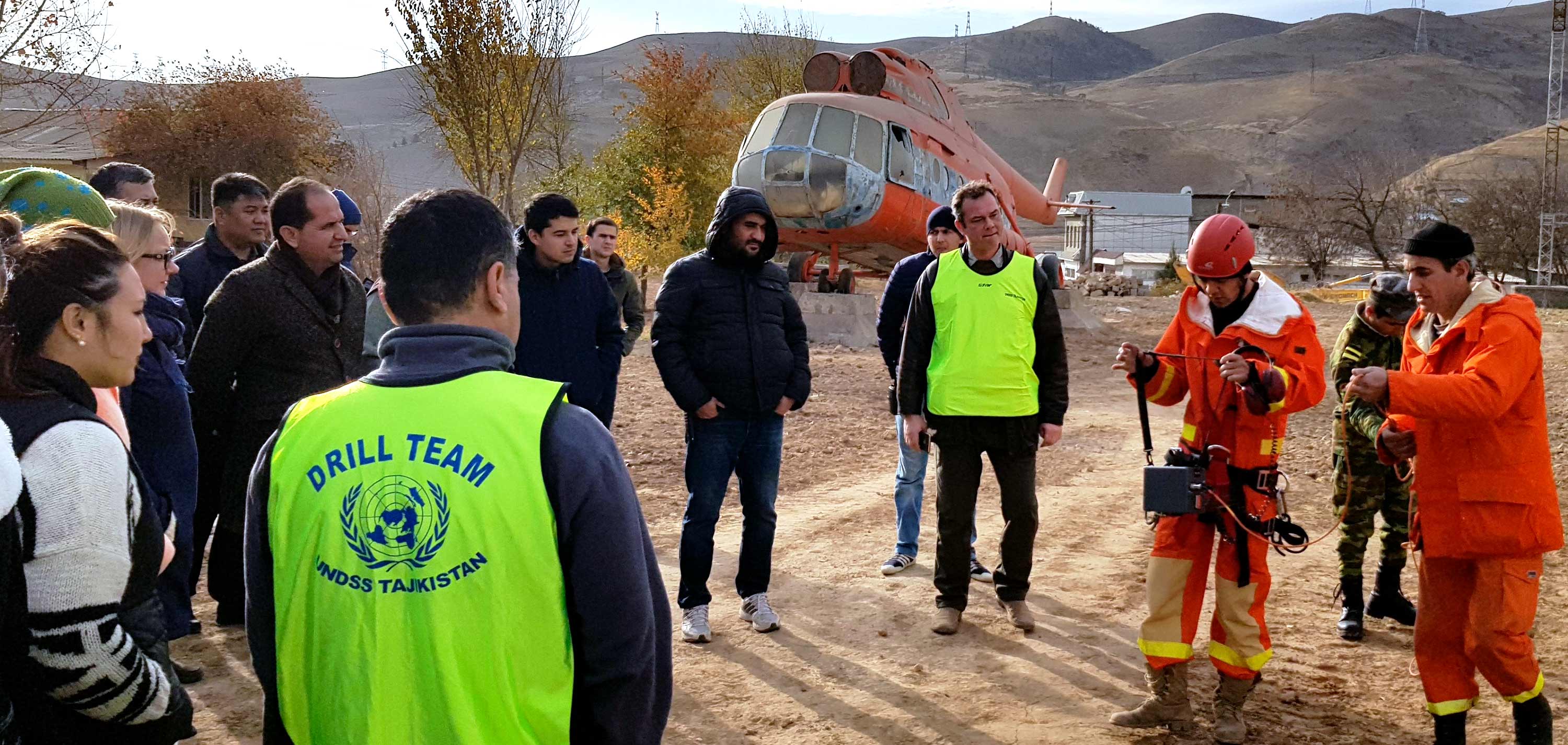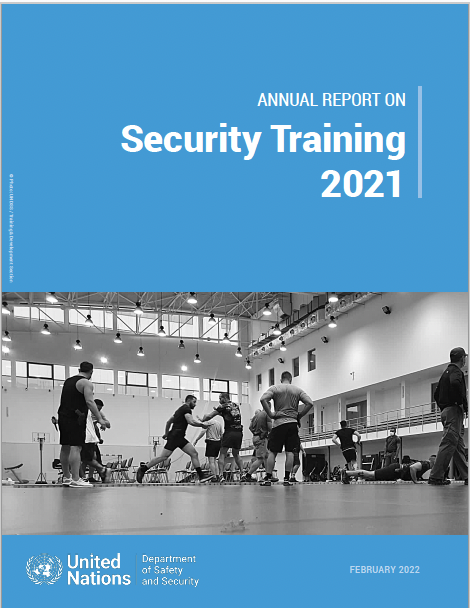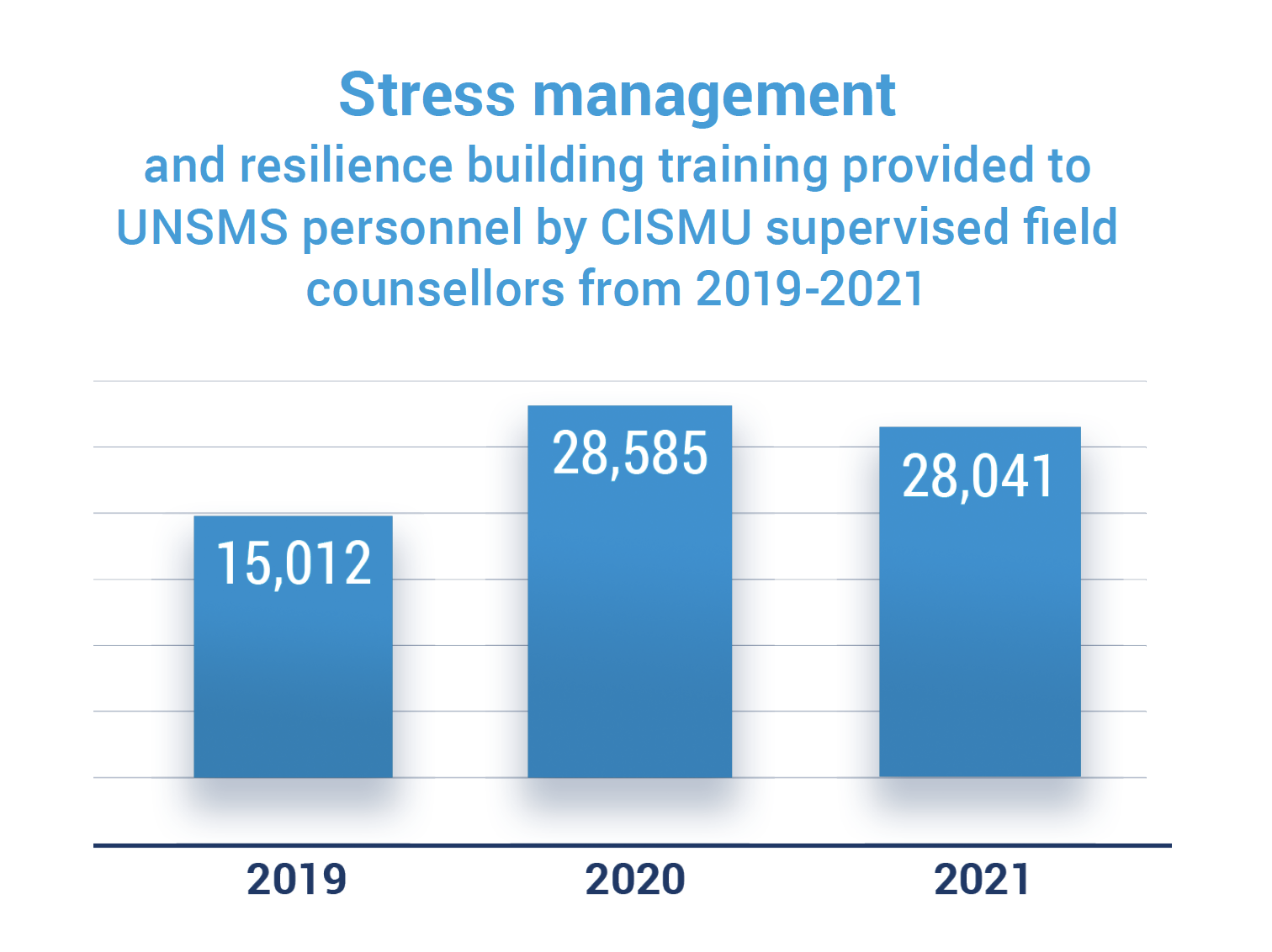Training & Development: A Key Element of Our Work
Training provides UN personnel with techniques to prevent security incidents and respond appropriately to mitigate the impact when an incident occurs. Training is also a key factor in ensuring that Security decision-makers and Security Personnel are up to date with the latest security policies, approaches and best practices needed to fulfil their roles and enable mandate delivery safely and securely.

UNDSS Tajikistan Security Officers facilitate a drill in 2017. ©UN Photo
Security Training Global Overview
Every year, security training is delivered to tens of thousands of personnel across the UN Security Management System through a variety of training programmes relevant to the security conditions in which our personnel are working.
BSAFE, for instance, is an online security awareness programme that provides all UNSMS personnel with the basic security awareness needed wherever they are working. It is also accessible to NGO, diplomatic and other partners at https://training.dss.un.org and has been completed by over half a million people since its launch in 2018. In high-risk areas, the Designated Official may require additional in-person training such as Safe and Secure Approaches to Field Environments (SSAFE) or specific training for medical First Responders.
Whether delivered online or in-person, we aim to provide personnel with knowledge and skills to adhere to UN security procedures and prevent or react appropriately to security incidents.
“It was a learning experience that brought me closer to reality and at the same time has increased my confidence levels in conducting field missions. The mix of theory and practical was perfect.” - SSAFE participant.
For more detailed information on UN security training, please download our 2021 Annual Report:

|
|

|
What UNDSS does for training
- We manage a global system of online and locally delivered in-person personal security awareness training tailored to the security threats faced by 180,000 UNSMS personnel and dependents.
- We develop, deliver and evaluate technical security training for 8,600 Security Personnel and 8,000 Security Decision-makers so they can enable mandate delivery with trusted security solutions.
- Work with partners to ensure our security training standards reflect the latest best practices in security management and in training design and delivery.
Security Training During COVID-19
The COVID-19 pandemic has significantly impacted security training in a variety of ways. Demand for psychosocial support training from UNDSS’s Critical Incident and Stress Management Unit (CISMU) has doubled from pre-pandemic levels, for instance. For safety reasons, much of the in-person training in 2020 was cancelled. In its standard-setting and oversight role, the Training and Development Section of UNDSS has issued guidance and is working with duty stations to safely resume in-person training with measures to mitigate the risks to participants. 2021 has seen a resumption of in-person security training in 40% of the duty stations that had run such training prior to the pandemic, as highlighted in the graph below.
Best practices
UNDSS’s Training and Development Section also works to ensure that security training reflects the latest best practices in security and training methods. The SSAFE course was updated in 2019-2020 and includes more practical training drills and a person-centred approach to personal security awareness.
In 2021, the Emergency Training Bag (ETB) course for UN First Responders was updated with the latest medical best practices and UN standards and with more practical exercises, which include greater emphasis on a victim-centered approach. Ensuring that security training is accessible and appropriate for everyone in the UN’s diverse environment, is an important priority for UNDSS.
TDS has issued a compilation of Best Practices in Inclusive Security Training in 2021 and continues to support all trainers across the UNSMS in its implementation. For more information about UN Security Training, please download our Annual Reports or contact undss.learning@un.org

